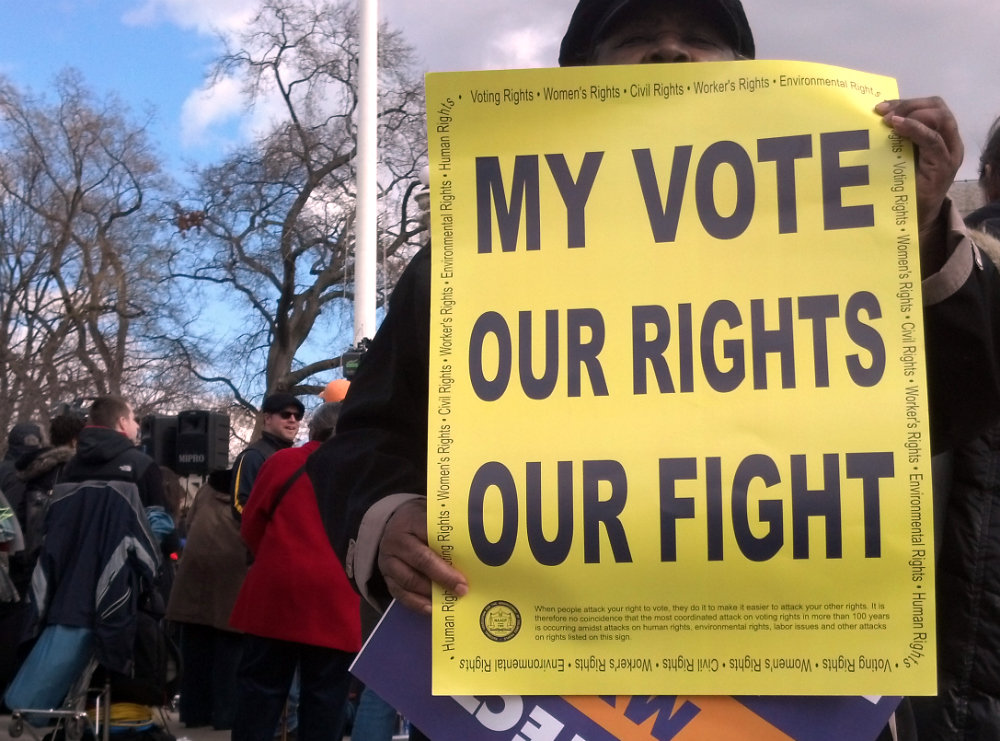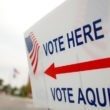In late February, the United States Supreme Court will review Section 5 of the Voting Rights Act. The decision by these nine justices could uphold generations of voting rights protections, or, adversely, this Court—by modifying or rejecting Section 5—could allow many of the racially discriminatory voting practices blocked in 2012 to re-emerge. While we were able to overcome and mitigate several of the worst of the suppression laws during the past year, the battle for voting rights is far from over.
An original component of the 1965 Voting Rights Act, Section 5 requires preclearance, by either the Attorney General or the U.S. District Court for the District of Columbia, of all election law changes in historically discriminatory states and jurisdictions before the changes are implemented. Last year, thanks to the application of Section 5 by the Department of Justice, many restrictive voter ID laws, restrictions on registration, reductions in days and hours allocated to early voting, and unlawful purging of voter files—in Texas, South Carolina and other states—were stopped before they could be implemented.
As we urge the Court to preserve Section 5 and its indispensable protection of vulnerable individuals and communities, we must stand together.
Had the Justice Department not enforced the provisions of Section 5 that required it to deny changes to voting laws that have a discriminatory impact, hundreds of thousands of voters would have been without a voice this past November.
Though other protections—Section 2 of the Voting Rights Act and the Help America Vote Act—will remain intact if Section 5 is struck down, these provisions lack the legal authority to block discriminatory laws before their effects are felt. Without Section 5, these surviving protections and provisions will fail a huge portion of American voters in another contentious election.
This is not a partisan issue, as some claim. When the Voting Rights Act was signed in 1965, it was a bipartisan effort. Presidents Nixon and Ford renewed the act, and in 1982 when Ronald Reagan re-authorized the VRA for 25 years he strengthened the provisions barring discrimination based on race. When Republican governors in Michigan and Virginia chose last year to kill strict Voter I.D. bills, they proved these voter suppression efforts are the stuff of ideological extremists and not the party of Jack Kemp or “the Party of Lincoln.”
As we urge the Court to preserve Section 5 and its indispensable protection of vulnerable individuals and communities, we must stand together every day and continue to demand that all of our elected officials defend democracy, and repeal laws or reject legislation that would deny American citizens their constitutionally protected right to vote.
Benjamin Todd Jealous is President and CEO of the NAACP.







0 Comments